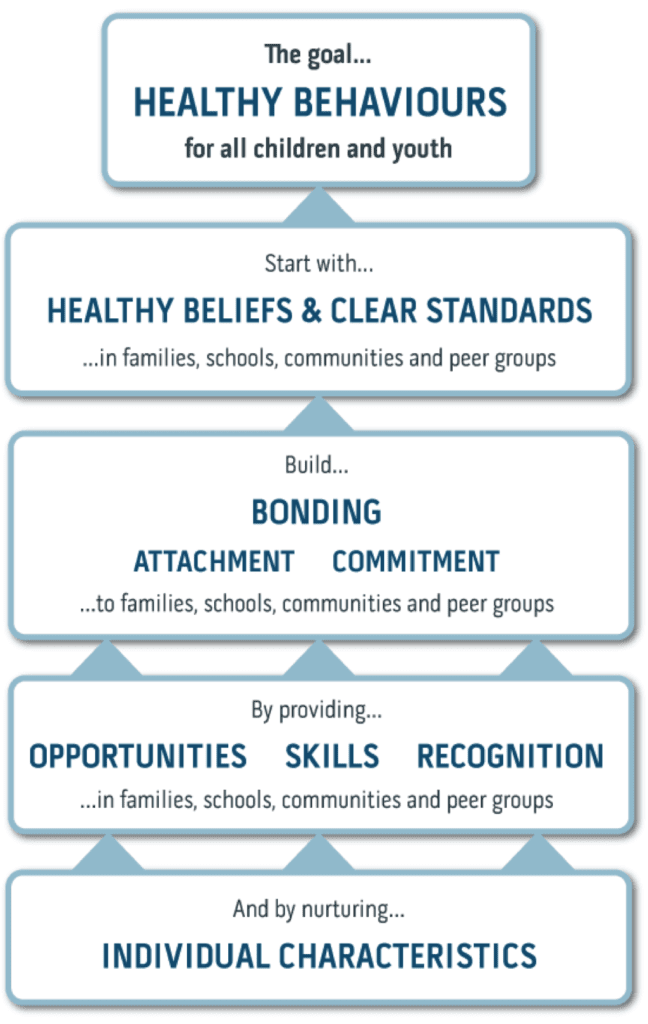
Researchers have identified protective factors that increase the likelihood of health and success for children. The Social Development Strategy is designed to increase protective factors so youth have opportunities, skills, and support to achieve healthy futures.

Providing young people with opportunities, skills, and recognition strengthens bonding with family, school and community. Strong bonds motivate young people to adopt healthy standards for behavior.
Opportunities: Provide developmentally appropriate opportunities to young people for active participation and meaningful interactions with others who are prosocial.
Skills: Teach young people the skills they need to succeed.
Recognition: Provide consistent specific praise and recognition for effort, improvement, and achievement.
Bonding: Acknowledge a young person’s effort and promote positive bonding – a sense of attachment, emotional connection and commitment to the people and groups who provide that recognition. Bonding can occur with a family member, teacher, coach, employer or neighbor.
Clear Standards for Behavior: Through the process of bonding, young people become motivated to live according to the healthy standards of the person or group to whom they are bonded.
© Prevention & Education.
